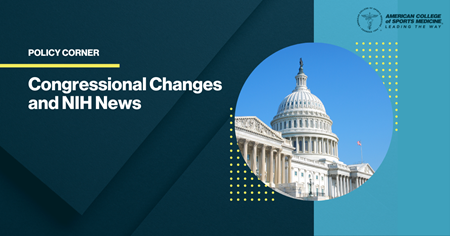Monte Ward |
Jan.
24, 2023
 Congress
Congress
On Jan. 3, the U.S. House of Representatives convened with 434 representatives-elect. The House has 74 new members, with a split of 222 Republicans to 212 Democrats. The U.S. Senate also welcomed seven new senators and has a current split of 51 Democrats to 49 Republicans.
Vying for the House Speaker position, Kevin McCarthy (R-CA) sought the 218 votes that he would need to win the position. After 15 rounds of voting taking place over four days, Congressman McCarthy negotiated terms with conservative Republicans that gave him a sufficient number of 215 votes to win the speakership. Present votes lowered the threshold for him to win without the 218 majority usually required.
If McCarthy had not received the required number of votes to win the speakership, the business of the House would have temporarily stalled, including the swearing in of all House members and approval of the House Rules for the 118th Congress.
Accompanying McCarthy’s win of the speakership are new negotiated House Rules, which eliminate proxy voting; offset mandatory spending increases with a corresponding cut in mandatory spending; and charge the Select Subcommittee on the Coronavirus Pandemic with investigating the origin of the virus, gain-of-function research, and the economic and societal impacts of forced COVID shutdowns.
Other big legislative items that will take attention this year are raising the debt ceiling, annual appropriations, immigration, tech privacy and the Farm Bill.
NIH
National Institutes of Health’s (NIH) Advisory Committee to the Director (ACD) convened its 125th meeting. Responsible for providing advice on matters related to NIH’s support of biomedical research, the meeting involved discussions on a broad range of science policy topics, including peer review, animal research and the biomedical workforce.
Larry Tabak, DDS, Ph.D., performing the duties of NIH director, shared high-level updates on NIH’s current initiatives, including the agency’s efforts to fund early-stage investigators (ESIs). Tabak noted that each year, NIH strives to fund 1,100 ESIs on their first R01 or equivalent grant. In 2022, NIH surpassed this goal, funding a record 1,589 ESI applicants.
Noni Byrnes, Ph.D., director of the Center for Scientific Review (CSR), presented proposed changes to NIH peer review criteria for both research project grants (RPG) and Ruth L. Kirschstein National Research Service Award (NRSA) fellowships. The framework aims to relieve administrative burden on reviewers by refocusing the process on scientific merit. The changes also seek to lessen the effect of reputational bias associated with institutions and primary investigators.
Following the peer review discussion, ACD members discussed the new working group focused on novel alternative methods, “Catalyzing the Development and Use of Alternative Methods to Advance Biomedical Research.” The working group aims to identify nonanimal methods and technologies used in biomedical research, assess their strengths and weaknesses and determine which areas merit further NIH investment. Co-chairs of the working group emphasized the agency’s recognition that these methods serve to complement ongoing research with animals. The working group plans to issue draft recommendations in June.
The Re-envisioning NIH-Supported Postdoctoral Training Working Group co-chairs provided background on the impetus for the working group. Primarily, a perceived decline in Ph.D.s pursuing postdoctoral research positions, which is a multifaceted problem. ACD members engaged in data pertaining to overall postdoc numbers, international graduate students and postdocs, F32 applications and awards, and benchmarking academic stipends with salaries available elsewhere. An RFI to solicit stakeholder engagement is expected to be issued in early 2023.
The next ACD meeting is scheduled for June 2023, when members anticipate hearing updates and next steps for each of these topics.